Scratch Centuri Israeli Gabriel Upscale Original Design / Scratch Built
Scratch - Centuri Israeli Gabriel Upscale {Scratch}
Contributed by Brian Ray
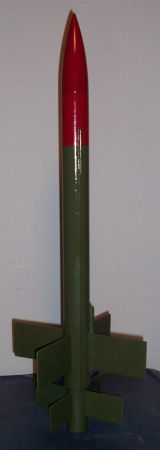
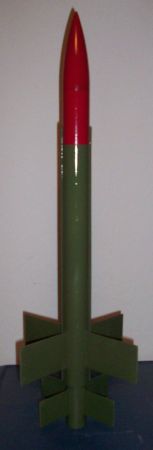
Brief:
For an entry into this contest I hearkened back to the early days of my latest "rein-BAR-nation" several
years ago. As I was devouring the wealth of information about rocketry, especially catalogs and plans of rockets of
yesteryear, I came across a Centuri catalog from the late '70s. The page of military rockets caught my attention so I
filed it away for future use. This contest seemed to be the perfect opportunity to break it out and choose one of them.
The Israeli Gabriel (#5333) was the rocket I decided to upscale. The move to BT-60 and BT-55 is about a 170% upgrade.
Construction:
My primary components were:
- 18" BT-60 body tube
- 4" BT-55 body tube
- PNC-60
- 2 sets of 4 hand-traced and cut balsa fins
- 2.75" 24mm engine tube
- 2 each BT-60 to BT-55 and BT-55 to BT-50 cardboard centering rings, scratch-made
- Elastic shock cord
- Hartle Engineering 18" parachute
- Dowels
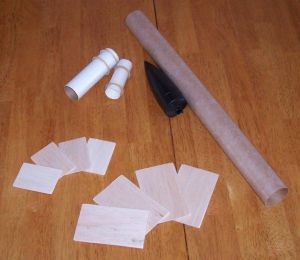 As I thought through how to best build this rocket, it occurred to me that if I
wasn't smart about, I could make it a lot more difficult than it needed to be or even ruin it entirely. I decided that
the smartest thing to do would be to work up the lower body tube first because trying to mark it for fins while
attached to the larger upper body tube would be a pain. I made the motor mount and glued it in the BT-55. I then made
the marks for the four fins and lined them on the door jamb, made a mark at the top of the BT-55 so I'd know how far to
glue it in, and then attached the larger set of centering rings.
As I thought through how to best build this rocket, it occurred to me that if I
wasn't smart about, I could make it a lot more difficult than it needed to be or even ruin it entirely. I decided that
the smartest thing to do would be to work up the lower body tube first because trying to mark it for fins while
attached to the larger upper body tube would be a pain. I made the motor mount and glued it in the BT-55. I then made
the marks for the four fins and lined them on the door jamb, made a mark at the top of the BT-55 so I'd know how far to
glue it in, and then attached the larger set of centering rings.
Once the lower tube was glued into the upper tube, I used the previously drawn guide lines to mark the upper tube and then used the door jamb to draw lines along the entire upper tube. At this point I turned the whole thing upside down and used a fin alignment guide to mark the halfway point between two sets of fin lines so I'd be able to line up the dowels. With both tubes thoroughly lined, I marked the spots on the upper and lower tubes where the bottom edge of the fins would rest.
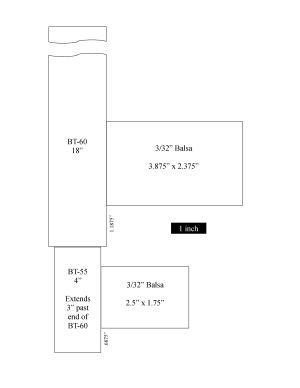 Attaching the fins took a little bit of effort. Actually, the attaching was
easy; it was the alignment that made me work. After sanding the tube for a better joint, I attached one set of fins,
upper and lower, at a time. Using a double-glue joint allowed me to get both on and then brace them for alignment. In
this case I used paint sticks from my local hardware store--one on each side of the set of fins and clamped together
with small clamps. While it took some time and effort and a moment or two of absolute frustration, the fins came
together great and were aligned beyond what my meager skills probably deserve.
Attaching the fins took a little bit of effort. Actually, the attaching was
easy; it was the alignment that made me work. After sanding the tube for a better joint, I attached one set of fins,
upper and lower, at a time. Using a double-glue joint allowed me to get both on and then brace them for alignment. In
this case I used paint sticks from my local hardware store--one on each side of the set of fins and clamped together
with small clamps. While it took some time and effort and a moment or two of absolute frustration, the fins came
together great and were aligned beyond what my meager skills probably deserve.
The next step, attaching the dowels to the sides, was a moment in which I wished I had paid better attention to what I was doing. Had I been a little smarter I would have attached the dowels before the fins in order to be able to hold the dowels down while the glue dried. It wasn't too terribly difficult. However, it was certainly no more difficult than trying to sand away half of the dowel.
Finishing:
After construction, I primed the rocket with Wal-Mart primer, sanding and priming several times. I painted the body
with Rustoleum Army Green and the top of the rocket and nose cone with Wal-Mart red. The paint scheme came from a
picture I found online of different variations in paint. I have not created any decals for it but may do so in the
future.
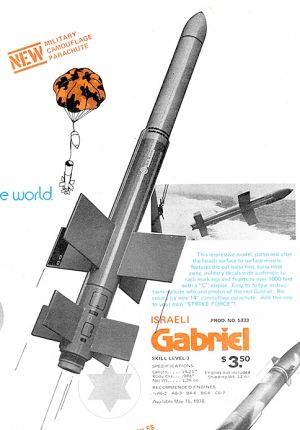
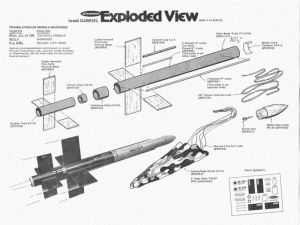
Flight and Recovery:
This rocket has only flown once and that was on a D12-5. The flight was great--straight and high. It came down hard,
however, and popped one fin and loosened another. The fins have since been repaired and it will fly again the next time
I go out.
Summary:
This was a very fun build for me. It had challenging aspects but not too much so. It looks unique, drawing attention
to itself on the pad from onlookers. It also has potential for different variations, in my opinion, probably the best
of which would be to make it a two-stage model.
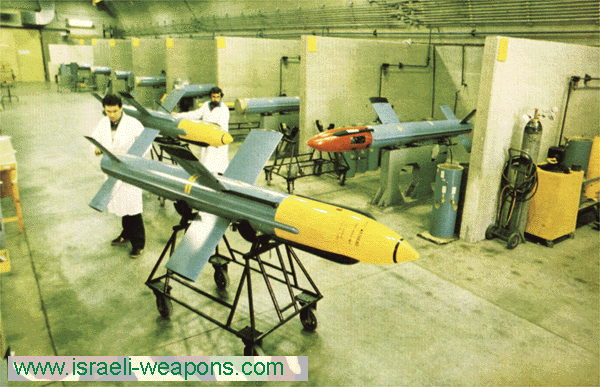
Sponsored Ads
 |
 |










